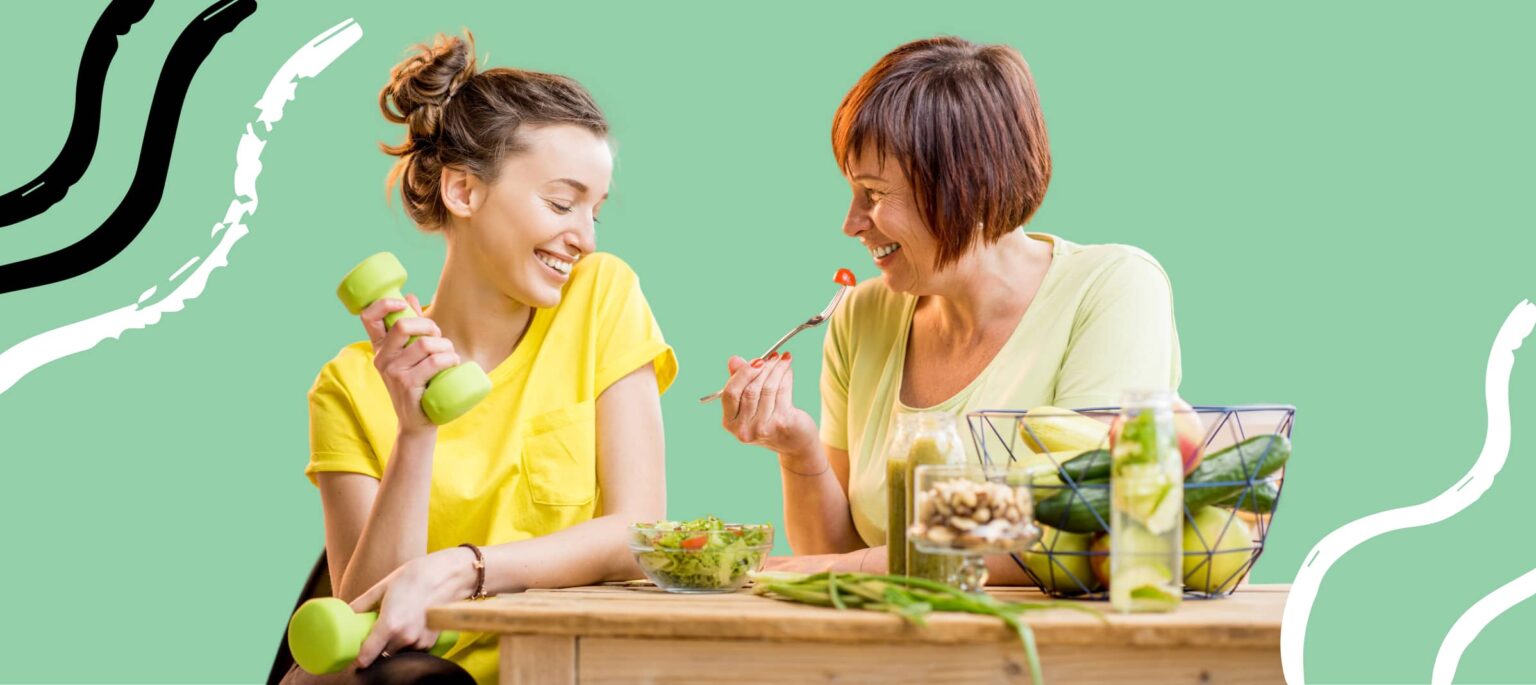What Foods Can Reduce Eye Pressure?
When you visit your eye doctor for an eye exam, one of the many indicators of eye health they look for is eye pressure. Also called intraocular pressure (IOP), if it’s abnormally high there is cause for concern. So, you may be wondering what foods you can eat to reduce eye pressure.
If your eye doctor determines you have ocular hypertension, another name for high eye pressure, you are at risk of developing glaucoma.1 Glaucoma is a group of eye diseases often caused by elevated eye pressure that damages the optic nerve. Without proper treatment, glaucoma can lead to vision loss.
Making simple and delicious changes to your diet may lower your eye pressure and reduce your risk of developing glaucoma. A healthy diet may even slow the progression of glaucoma, though there’s no cure for the disease.
Hope you’re hungry because we’re covering the best foods to reduce your eye pressure naturally!
Key Points
- High eye pressure increases your risk of developing glaucoma, a serious condition that can lead to blindness.
- A diet rich in fruits, vegetables, lean proteins, fish, nuts, and seeds is important for good eye health.
- Omega-3 supplements have been shown to reduce eye pressure.
High Eye Pressure and Glaucoma
Glaucoma is a serious eye condition associated with elevated eye pressure and optic nerve damage. It’s a growing problem worldwide and the leading cause of vision loss in adults.2 Glaucoma affects over 60 million adults over the age of 40 every year.3
In healthy eyes, the aqueous humor (clear fluid in the space between the cornea and iris) flows properly through the eye’s drainage system. When fluid production and fluid drainage are in balance, you have healthy eye pressure.2
In most cases of glaucoma, the eye’s drainage system becomes clogged. This raises eye pressure, a condition called ocular hypertension. Over time, ocular hypertension causes damage to the optic nerve, which can lead to visual field defects and vision loss.2
You can’t tell you have high eye pressure or glaucoma because there are no symptoms in the early stages. Regular eye exams are important so your eye doctor (optometrist or ophthalmologist) can detect elevated eye pressure early. With prompt treatment, it’s possible to reduce eye pressure in an effort to prevent glaucoma.
In addition to healthy diet choices to reduce eye pressure, your doctor may prescribe medicated eye drops. Unfortunately, the eye drops used for glaucoma treatment contain preservatives that can cause dry eye disease.
Read more about What Causes Dry Eye Disease and How to Treat Dry Eye Disease
What Foods to Eat to Reduce Eye Pressure
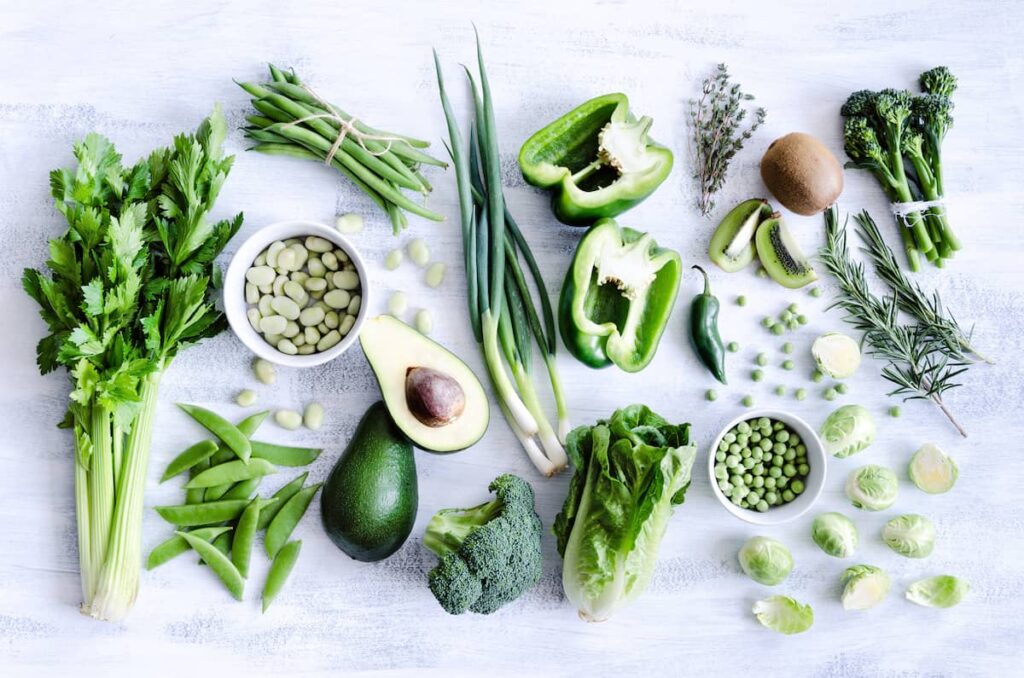
You can lower your risk of glaucoma by choosing healthy foods that may reduce eye pressure. Good nutrition also benefits your health overall, lowering your risk of diabetes and high blood pressure, which are also risk factors for debilitating eye conditions.
Grab your grocery list and get ready to add these nutrient-rich choices to support your eye health.
Colorful fruits and vegetables
Nothing beats fruits and vegetables for a healthy, delicious addition to your diet. Packed with nutrients that benefit your body, eating fruits and vegetables can protect your eye health and may lower eye pressure.
Foods high in vitamins A and C are great for your eyes. Additionally, fruits and veggies contain the antioxidants lutein and zeaxanthin. These compounds protect against oxidative stress, which can cause optic nerve damage and glaucoma.4
Choose from a rainbow of colorful produce including carrots, celery, cantaloupe, sweet potatoes, peaches, beets, bell peppers and berries. Cruciferous vegetables are a great source of vitamin C as well. Try Brussels sprouts, cabbage, broccoli and bok choy.
Leafy greens
Enjoy large servings of leafy green vegetables for a healthy dose of nitrates. Eating nitrates increases nitric acid in the body improving blood flow. Studies have shown nitric acid can lower eye pressure and the risk of primary open-angle glaucoma, the most common form of the disease.5
Kale, spinach, romaine lettuce, arugula and endive are excellent choices. These powerful foods are also beneficial against cancer, heart disease and age-related macular degeneration (AMD), another eye condition.4
Nuts and seeds
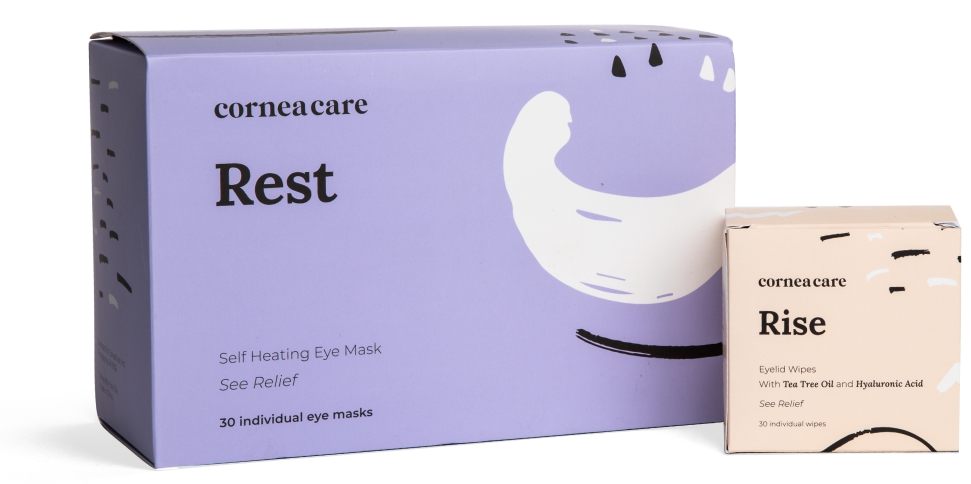
Foundation
Eyelid Hygiene Plan 2
Perfect for eye dryness, burning, itching, crusting/flaking of eyelashes and inflamed eyelids. Free shipping 📦.
Try today - $45
Vitamin E is another important nutrient to protect your eyes and keep them healthy. Luckily, vitamin E is packed into some of the best snacks around! Grab a handful of nuts and seeds such as almonds, pistachios and sunflower seeds, for an eye-healthy boost. As an added bonus, these foods can also reduce the risk of cataracts and AMD.4
Fish and seafood
Essential fatty acids found in some fish help reduce eye pressure and promote eye health. Omega-3 fatty acids are anti-inflammatory and improve the function of your nerves. Salmon, sardines, halibut, oysters and tuna lower your risk of glaucoma, while also protecting your eyes from AMD and preventing heart disease.6
Foods rich in magnesium
Here’s another list of delicious foods that are good for your eyes: bananas, avocados, pumpkin seeds and black beans. These foods are all good sources of magnesium which improves blood flow to the eye, benefiting those with ocular hypertension or glaucoma.4
Healthy protein foods
We mentioned the benefits of vitamin E in nuts and seeds, and you can also find it in eggs. Eye-healthy zinc sources include poultry and red meat. Choose lean cuts to keep your heart healthy too. You’ll also find healthful nutrients for your eyes in soy foods and Greek yogurt.
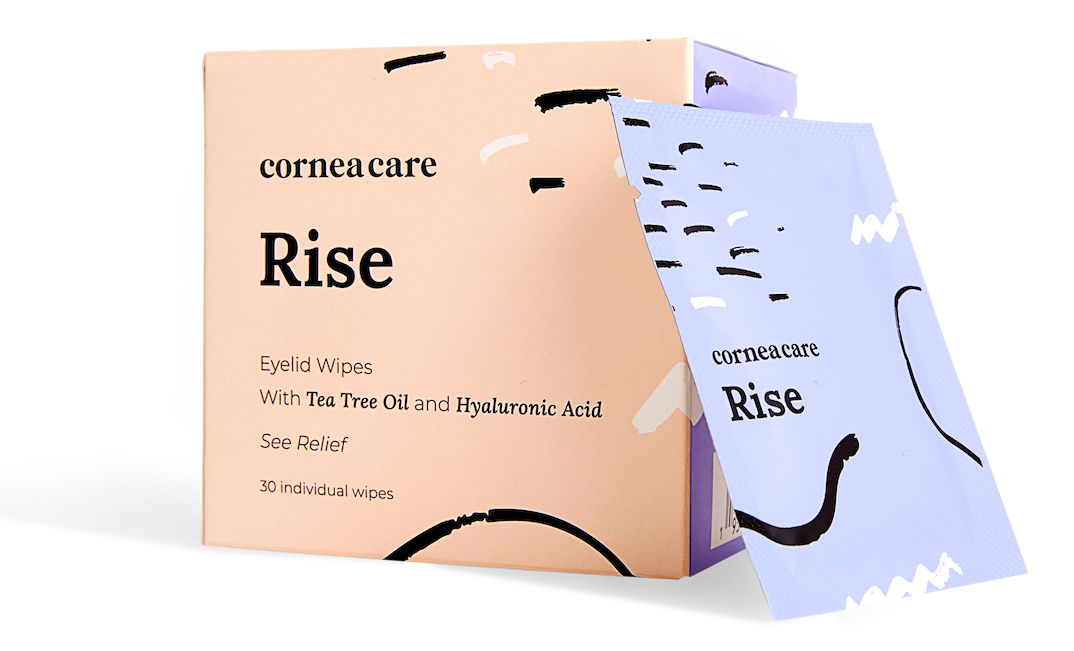
Rise
Eyelid Wipes
Perfect for eye dryness, itching, burning, and crusting/flaking of eyelashes. Free shipping 📦
Try today - $25
What to Avoid
We can all benefit from limiting simple carbohydrates and sugary foods, and that’s especially true for glaucoma patients. Avoiding or limiting these foods may reduce high eye pressure and decrease the risk of developing glaucoma.4
One of the easiest ways to cut out unhealthy foods is to focus on adding more healthy options. Instead of fixating on eliminating certain foods, try “crowding out” the less nutritious choices by filling your meals with fiber-rich vegetables, lean proteins, and healthy fats. This makes dietary changes feel less restrictive and more sustainable, helping you maintain better eye health and lower your risk of high eye pressure over time.10
Unhealthy fats
The foods so popular in the American diet are unfortunately high in unhealthy trans fats. These include fried foods and baked goods. Shifting these out of your diet can improve eye pressure and slow the progression of glaucoma.
Excess caffeine
While a cup of hot tea has shown some positive benefits for glaucoma patients,7 too much caffeine can make things worse. Keep coffee to two cups per day, especially if you have a genetic predisposition to glaucoma.
Drinking too fast
Staying hydrated is important for your health. Drink plenty of water, but don’t chug it. Studies show that drinking large amounts of water quickly can raise eye pressure. Take your time and sip water throughout the day, rather than trying to catch up with big gulps all at once.8
Adding Supplements
Do your best to eat a healthy, balanced diet full of vitamins, minerals, lean protein and omega-3 fatty acids. Choose foods with antioxidant and anti-inflammatory properties.
Of course, that’s not always easy. Oral supplements can help address any deficiencies in your diet, so you get all the essentials your body needs. In fact, studies have shown that omega-3 fatty acid supplements can reduce eye pressure, which also lowers your risk of glaucoma.9
CorneaCare Eye Omega 3 supplements are uniquely formulated to reduce inflammation and oxidation and promote visual, mental and physical health. You might also like our Longevity Eye Supplement bundle which pairs our Eye Omega 3 supplement with our once-daily Eye Vitamins & Minerals multivitamin. Together, they work synergistically to deliver a powerful combo for your eyes, mind and body.
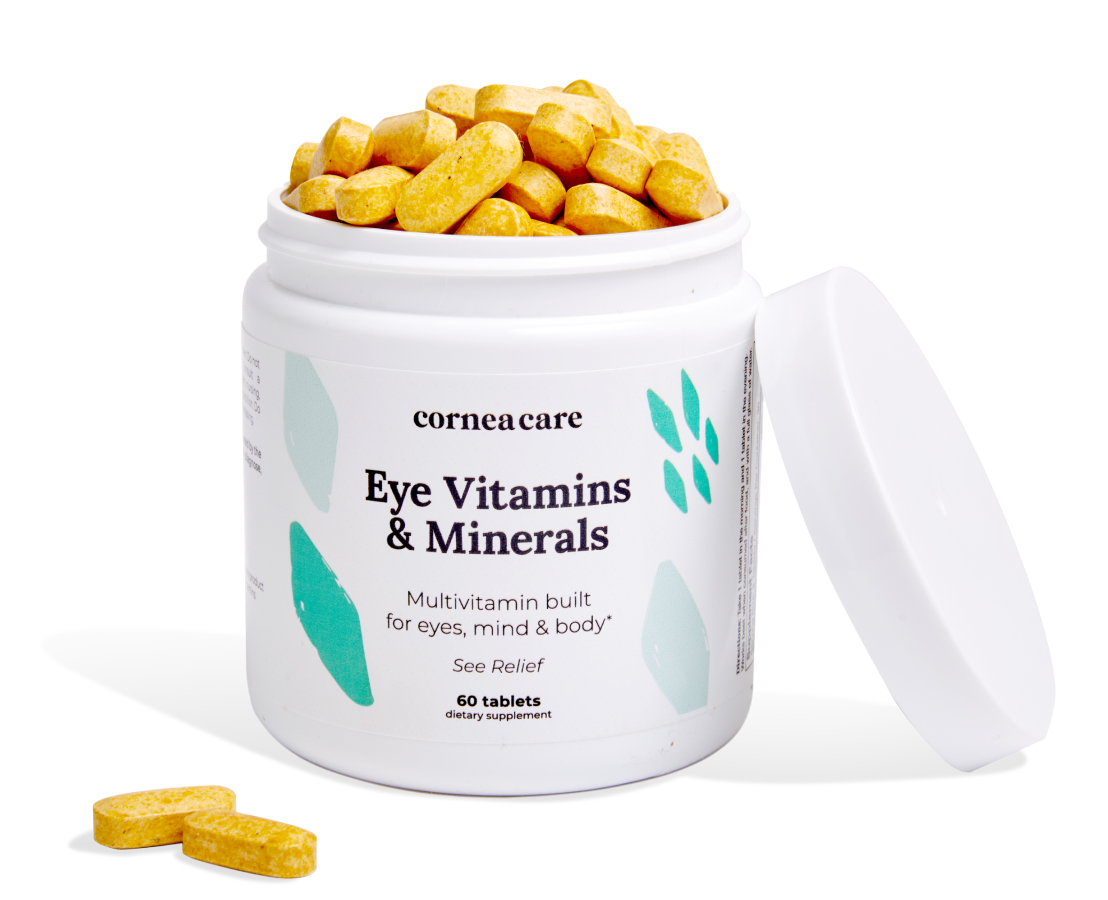
Multivitamin
Eye Vitamins & Minerals
A single multivitamin to address the nutritional needs of your eyes, mind and body. 📦 Free shipping.
Try today - $35
Foods that Reduce Eye Pressure FAQ
Regular exercise and a balanced diet full of fruits, vegetables, fish, nuts and seeds can reduce your risk of glaucoma, and keep your eyes healthy for life. Studies have also shown that omega-3 fatty acid supplements can reduce eye pressure.
Studies show that drinking tea rich in antioxidants and flavonoids can reduce the risk of developing glaucoma, an eye condition associated with elevated eye pressure. Keeping hydrated with plenty of water throughout the day is beneficial, but don’t chug it. Drinking large amounts of water quickly has been shown to increase eye pressure.
Limiting your consumption of unhealthy fats and sugar can help lower eye pressure and slow the progression of glaucoma. Steer clear of fried foods and baked goods, and choose colorful fruits and vegetables instead.
A balanced diet of fruit, vegetables, lean protein, and healthy fats can reduce your risk of high eye pressure and glaucoma. Leafy green vegetables, berries, avocados, almonds, salmon, pumpkin seeds and eggs are all eye healthy choices.
A balanced diet loaded with colorful fruits and vegetables may lower your risk of developing glaucoma. Powerful nutrients found in these foods, including antioxidants, nitrates, and Vitamins A and C, help keep your eyes healthy. Fill up on green leafy vegetables, carrots, peaches, citrus fruits, berries, broccoli and cauliflower.
Putting It All Together
Eating healthy foods to reduce eye pressure is easier and tastier than you think! Try a salad full of leafy greens topped with grilled salmon and a sprinkling of sliced almonds, then drizzle olive oil and fresh lemon juice for a perfectly delicious eye-healthy meal.
A balanced diet of fruits, vegetables, lean meat, fish and nuts can lower your risk of high eye pressure and glaucoma. CorneaCare omega-3 supplements and eye vitamins & minerals can also support your health and fill any gaps in your diet.
Don’t skip your annual eye exam with your eye doctor. That’s the only way to detect a rise in eye pressure and begin treatment if needed.
What’s Next
Read more about the Best Foods to Improve Eyesight and check out other great articles on the Eye Health & Wellness blog!


